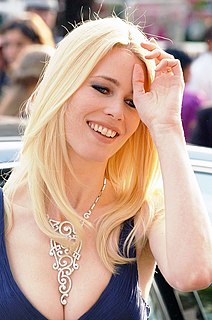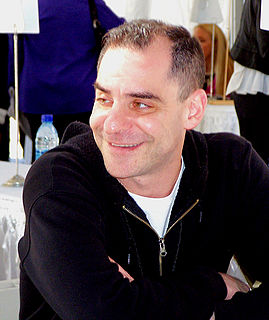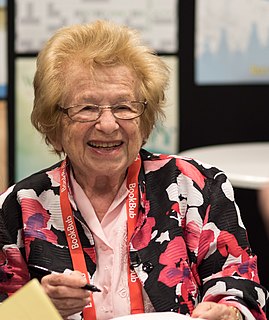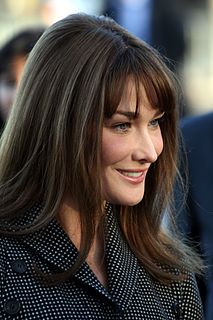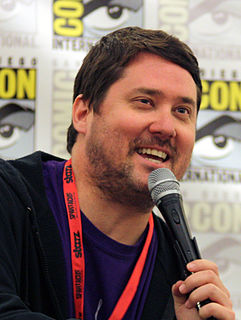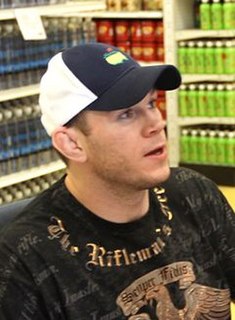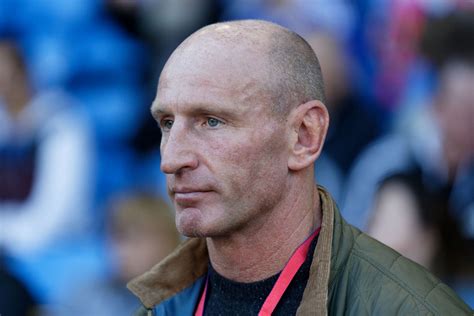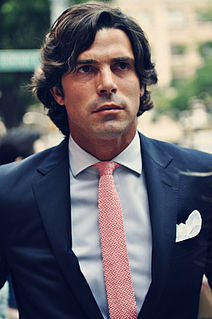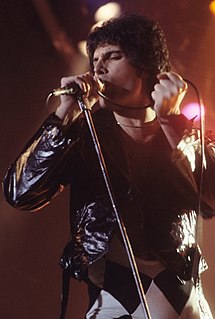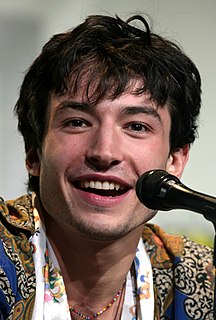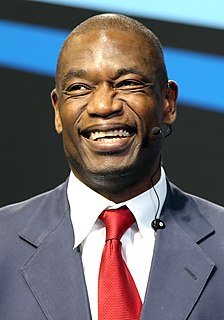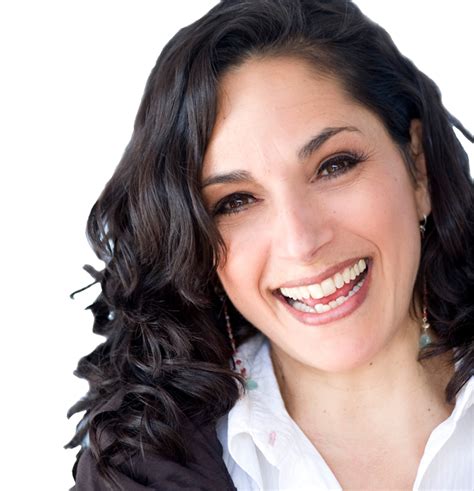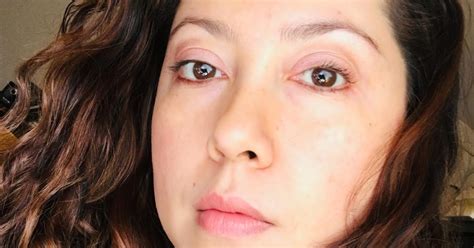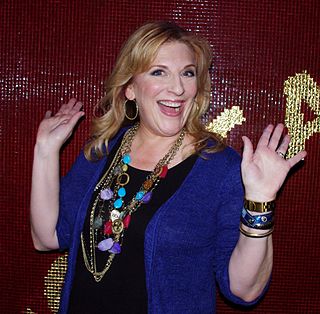Top 355 HIV Quotes & Sayings - Page 6
Explore popular HIV quotes.
Last updated on April 20, 2025.
Depending on where you live, your threat is much different from the other person. If you ask a New Yorker today, because of the way the press plays it, he will say terrorism is his biggest fear. But for somebody living on a small island state, then it is climate change, the rise of the sea level, for his whole island may be washed away. If I go to southern Africa, they tell me it is HIV/AIDS and somewhere in Asia it is poverty. This is also why you will find it difficult to find agreements, because if you want someone to be concerned about your threat, then you should be concerned about his.
Isn't it sad, that in a time when we face so many devastating problems - poverty, HIV/AIDS, war and conflict - that in our Communion we should be investing so much time and energy on disagreement about sexual orientation? [The Communion, which] used to be known for embodying the attribute of comprehensiveness, of inclusiveness, where we were meant to accommodate all and diverse views, saying we may differ in our theology but we belong together as sisters and brothers [now seems] hell-bent on excommunicating one another. God must look on and God must weep.
Your medical documents will say Acquired Immune Deficiency Syndrome that is AIDS. What that means you have got this challenge of immune deficiency. Alright what causes immune deficiency? HIV. Alright. Is that all that causes immune deficiency? The medical textbooks will say there are other things that cause immune deficiency. There is also genetic immune deficiency that is a different phenomenon.
Christianity was created by some decadent and degenerated Romans as a tool of oppression, in the late Roman era, and it should be treated accordingly. It is like handcuffs to the mind and spirit and is nothing but destructive to mankind. In fact I don't really see Christianity as a religion. It is more like a spiritual plague, a mass psychosis, and it should first and foremost be treated as a problem to be solved by the medical science. Christianity is a diagnosis. It's like Islam and the other Asian religions, a HIV/AIDS of the spirit and mind.
For every woman and girl violently attacked, we reduce our humanity. For every woman forced into unprotected sex because men demand this, we destroy dignity and pride. Every woman who has to sell her life for sex we condemn to a lifetime in prison. For every moment we remain silent, we conspire against our women. For every woman infected by HIV, we destroy a generation.
As a new mother, I want to give my children the best start in life but millions of children affected with AIDS don't live with such certainty. We can all do something to give them a future worth living for. We can make a difference in a child's life by joining with UNICEF to ensure that mothers and children are given the treatment that they deserve, in order to live a life free from HIV and AIDS.
A secondhand wardrobe hand clothes doesn't make one an artist. Neither do a hair-trigger temper, melancholic nature, propensity for tears, hating your parents, or HIV. I hate to say it - none of these make one an artist. They can help, but just as being gay doesn't make one witty... the only thing that makes one an artist is making art.
One of the patients that really stands out for me was a middle-aged woman who actually had HIV in the early days, and helping her kind of come to terms with that. She had rather late-stage illness, but just helping her, sort of cope with the challenges of the disease and the infections and all that, but also her social issues, like, coming out to her family about the illness, and a very religious family.
We're still missing about a dozen vaccines that will make a huge difference. For adults, we've got HIV and TB are still huge; for kids malaria is still killing a half million kids a year out of that 6 million. We probably need some vaccines, but we need a little more data to make sure we're getting the vaccines that will save the most lives.
Many young people are not having safe sex because they think medicines will make everything okay. The thing about these medicines is that you often have to take them your whole life. They can be very aggressive chemicals for your body. Just because you don't hear of as many people around you dying from HIV/AIDS - just like how it was in the '80s and '90s - you can still die. I'd say to someone who's very young to protect themselves and protect their lives. There's nothing safer than not catching this virus. It's having something that never goes out of your system.
I am sure it is in the medical textbooks, there are many things that cause immune deficiency and you will find therefore in the South African HIV and AIDS programme, that it will say that part of what we have got to do is to make sure that our health infrastructure, our health system is able to deal adequately with all of the illnesses that are a consequence of AIDS.
Even though it is the case that poverty is linked to AIDS, in the sense that Africa is poor and they have a lot of AIDS, it's not necessarily the case that improving poverty - at least in the short run, that improving exports and improving development - it's not necessarily the case that that's going to lead to a decline in HIV prevalence.
To show that a comedian on stage in India talking about sanitation or in South Africa talking about HIV and AIDS awareness, if you follow the joke into their lives, you can see that, like, oh, these things aren't just contrived in joke books. This is real life. I think the best comedians have that bravery and courage to say, Oh, this is what it is.
Pot advocates actually try to convince people who don't need or want medical marijuana to go get a card, because as those numbers go up, it's like voting for an initiative. It's saying "There are this many people who want to use this who are not getting in trouble, who are not turning around and selling it or giving it to minors." No matter what they have - cancer, HIV, depression - anybody who says they feel better after smoking marijuana, I feel they should be able to do so, especially if it's in the privacy of their own home.
We need money to scale up the services that bring medicine to mothers. The United States government's doing that. There's a global fund that's providing money. mothers2mothers provides for mothers who come in who don't have education, who don't have support. mothers2mothers employs mothers with HIV, mothers who were patients recently in the very same facilities. We take those mothers who were patients who've had their babies, we bring them back, we train them, we pay them, to be health care professionals.
It may be hard to remember how difficult it was for people to talk about HIV/AIDS back in the 1980's and because of both Ronald Reagan and Nancy Reagan - in particular Mrs Reagan - we started a national conversation, when before nobody would talk about it, nobody wanted to do anything about it. Something that I really appreciate was her very effective but low-key advocacy, but it penetrated the public conscience, and people began to say "hey we have to do something about this too.
Right after undergrad, I started doing low-level work on health issues in sub-Saharan Africa, and what struck me was the disconnect between how people in New York would speak about some of the issues people were facing. At the time, 2006-ish, there were a number of big media campaigns to raise awareness about HIV in sub-Saharan Africa.
What is needed now are increased efforts to promote youth participation and commitment; more services aimed at youth; more parental involvement; more education and information, using schools and other sites; more protection for girls, orphaned children and young women;and more partnerships with people with HIV and AIDS.
The Project Angel Food Program's mission is to nourish the body and spirit of men, women and children affected by HIV/AIDS and other serious illness. The Project Angel Food Program delivers free and nutritious meals prepared with love. We act out of a sense of urgency because hunger and illness cannot wait.
I think if you read the story as bad guy turns good guy, then clearly it is a cliché. But my experience, when I spent three years working with young people in the townships on issues principally around HIV/AIDS, is that people are usually neither entirely good or bad. They are usually variations of both. Just because someone is a carjacker doesn't mean they are a ruthless cold-blooded murderer.
So many state Republican governors and legislators are defunding Planned Parenthood and shutting down clinics that not only provide a safe abortion but HIV testing, cancer screenings, and so much else that women have every right to access, which is harder if you are unemployed or you are a low-income woman that's part of the real service that Planned Parenthood provides.
One out of four kids in Lesotho has AIDS, and the idea of the charity is to help the children first fight the stigma of living with HIV and then teach them how to live with it and survive and get an education so all these children can have a normal life. When you're changing the life of so many kids - one out of four is a big number - you change the direction of an entire nation.
Following the enormous conjecture in the press over the last two weeks, I wish to confirm that I have been tested HIV positive and have AIDS. I felt it correct to keep this information private to date to protect the privacy of those around me. However, the time has come now for my friends and fans around the world to know the truth and I hope that everyone will join with my doctor and all those worldwide in the fight against this terrible disease.
We [African-Americans] are nearly half of all of the new cases of HIV every year, but we only represent 13 percent of the [U.S.] population. So, this is something that's literally bombarding our community, non-stop. We're such a small part of the nation [and] those numbers are alarming. We're putting ourselves in danger, we don't talk about getting tested and we don't talk about knowing [your status].
To an extent that undermines classical standards of science, some purported scientific results concerning 'HIV' and 'AIDS' have been handled by press releases, by disinformation, by low-quality studies, and by some suppression of information, manipulating the media and people at large. When the official scientific press does not report correctly, or obstructs views dissenting from those of the scientific establishment, it loses credibility and leaves no alternative but to find information elsewhere.
Contempt for science could perhaps depend on the fact that, science hasn't been able to solve any of our basic problems, for example the environmental pollution or the problems with HIV and AIDS. This is the worst disease of our time, and scientists are lost. I believe that many people are disappointed with science when the answers we need are not delivered.
It used to be controversial whether smoking caused lung cancer, it used to be controversial whether HIV caused AIDS. Now, there are a few mavericks who deny those things. In the case of climate change, I think the debate is going the same way in that there is a strong consensus that it is a serious matter.
Just look at the list of who the lowest-paid people are. Pediatricians are at the bottom. You would also look at internists. You would look at psychiatrists. You would look at family physicians, HIV specialists. People who take care of chronic illnesses by seeing people carefully over time, those are the people who get the least money. The people who have the most are people like orthopedic surgeons, interventional cardiologists. And my point isn't that there is something wrong with heroism.
Housing Works is the coolest thrift store in the world, because not only are they the best thrift store - they're not the most thrifty thrift store - but they have amazing stuff and all of their proceeds go directly to kids, mostly homeless kids, living with AIDS and HIV in New York, in the metropolitan area.
Africa needs more funding to continue to fight all of those diseases. We are losing more than 1.3 million young children under the age of five every year because of malaria. We've already lost 25 million people to the pandemic of HIV-AIDS. More people are dying now from typhoid fever. Diabetes is on the rise.
The truth is that the 143 million orphaned children and the 11 million who starve to death or die from preventable diseases and the 8.5 million who work as child slaves, prostitutes, or under other horrific conditions and the 2.3 million who live with HIV add up to 164.8 million needy children. And though at first glance that looks like a big number, 2.1 billion people on this earth proclaim to be Christians. The truth is that if only 8 percent of the Christians would care for one more child, there would not be any statistics left.
This president Barack Obama has done more for the LGBT community than any president in history. It's just an objective fact. And his legacy is secure in terms of the advancement of the rights of the LGBT community, from 'Don't Ask', 'Don't Tell' to his support for overturning the Defense of Marriage Act, and of course marriage equality, work on HIV and AIDS, and other things.
Raw and delicate, poignant and poetic, Shelby Smoak’s Bleeder exposes the sorrow and sometimes sweetness of coming to age with HIV. In a world of misunderstanding and stigmas, the young Smoak searches for love and acceptance, and his readers can’t help but find themselves becoming emotionally attached to him. His is an observant and encompassing story, noticing the brilliance of existence that others might take for granted. The sunsets written here are more lovely than in life.
When I first came up, the whole AIDS epidemic was starting, and the gay community that I experienced from the beginning of my career was mostly - and overwhelmingly - concerned with staying alive. And, also, I felt really aware of the preciousness of life and time. The gay community and people who were HIV-positive were treated so badly, and I was very disturbed by things. But I also saw a lot of love and connection in the gay community at that time.
The global HIV/AIDS epidemic is an unprecedented crisis that requires an unprecedented response. In particular it requires solidarity - between the healthy and the sick, between rich and poor, and above all, between richer and poorer nations. We have 30 million orphans already. How many more do we have to get, to wake up?
And the stigma hasn't really changed that much in 31 years. You are still getting people - it's a shame-based disease. It's based on sexual transmission. And it's still shame-based. And until people feel strong enough and feel loved enough to actually open up and say, listen, I'm HIV-positive, then we are facing an uphill battle.
When I first found out I had HIV, I had to find somebody who was living with it, who could help me understand my journey and what I was going to have to deal with day-to-day. I found out that a person named Elizabeth Frazier was living with AIDS at the time, and so I called her up, and she took a meeting with me.
Sport can be used for messaging, for example, making the connections between shin guards or a helmet that protects you, and protection in terms of HIV and AIDS. There has also been a very active program in Africa called 'Kick Polio out of Africa,' where soccer players have spoken out in terms of polio. There is also going to be a swim for malaria.
Overall, I have formed three major organizations: the National Association of Business Women, the Young Women's Leaders Network, and the Joyce Banda Foundation. Under the foundation, we have a huge program that targets women to teach them about HIV and other diseases and to give them economic empowerment.
If you do nothing, if a mother doesn't come for care, if she breastfeeds her baby, the chances of the baby getting HIV are about 40%. So it's about the difference between 40% and zero. This is almost totally preventable. But it requires mothers coming for care and getting the medicines they need, and getting the education and support they need.
Children who have lost parents to HIV/AIDS are not only just as deserving of an education as any other children, but they may need that education even more. Being part of a school environment will prepare them for the future, while helping to remove the stigma and discrimination unfortunately associated with AIDS.
An AIDS-free generation would mean that virtually no child is born with HIV; that, as those children grow up, their risk of becoming infected is far lower than it is today; and that those who become infected can access treatment to help prevent them from developing AIDS and from passing the virus on to others.
When we understand that we are a human race, what affects you affects me, what affects her affects you and so on and so on, then we'll look at this thing [HIV/AIDS] for what it really is. It's a disease that's out to kill all of us. What will make it continue is our prejudices, our ideas about it, and the fact that we don't look at ourselves as one giant community.
I admire leaders in science, people who really figure things out like Richard Fineman or people who work on vaccines, tons of people working on [the] HIV vaccine. There's leaders in business, people like Warren Buffett, who've got a certain approach they take that are pretty amazing. There [are] product innovators like Steve Jobs was, where he gets behind a concept and does a fantastic job.
ACT UP was trying to explain to Americans that AIDS could affect all of us: that health care that ended once your disease was expensive could affect more than gay men with HIV or AIDS. We were trying to tell them about the future - a future they didn't yet see and would be forced to accept if they failed to act.






